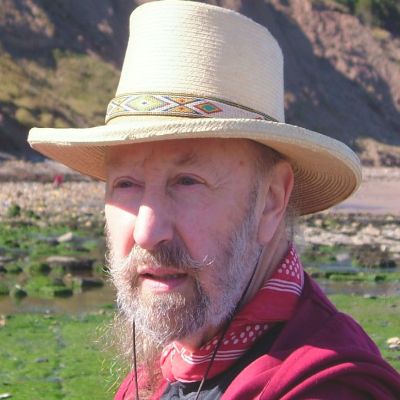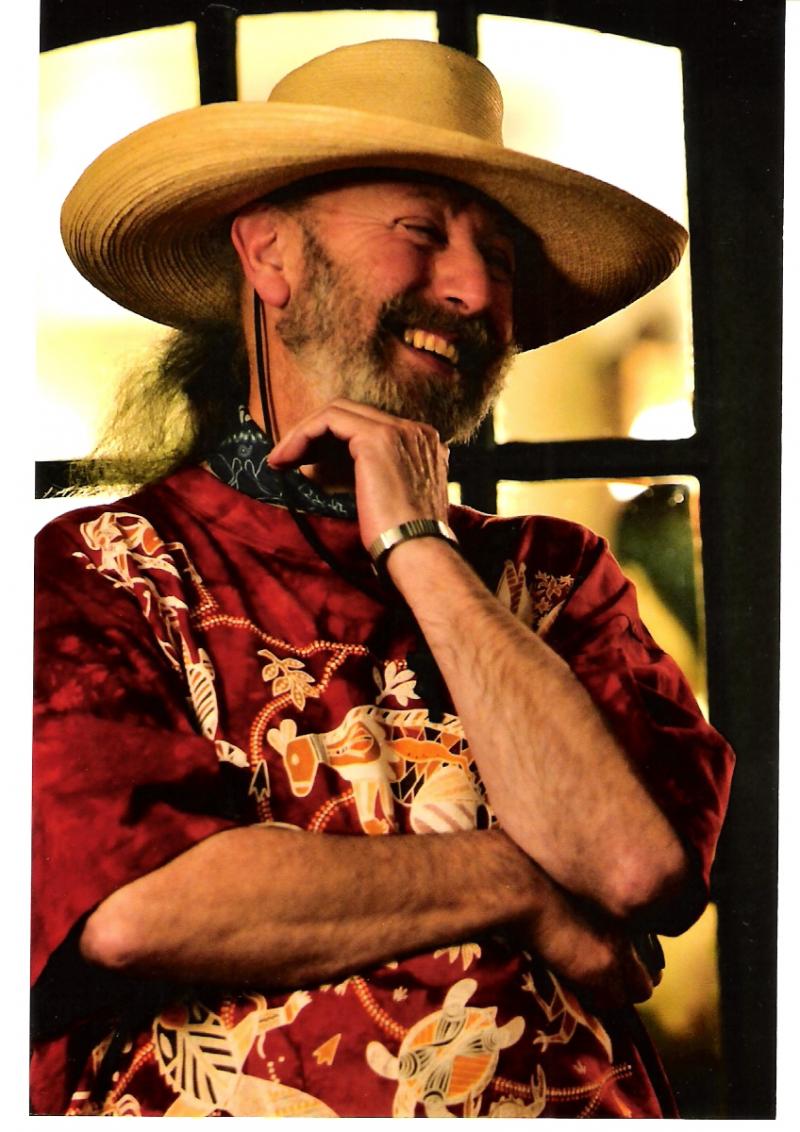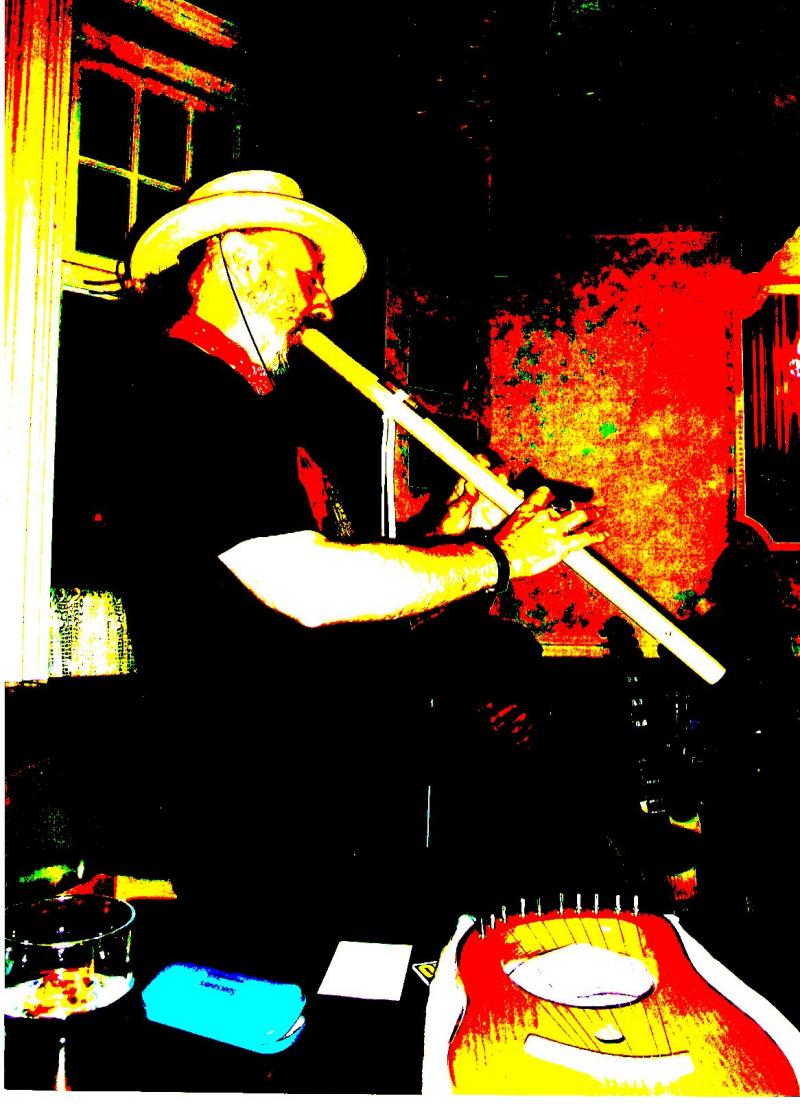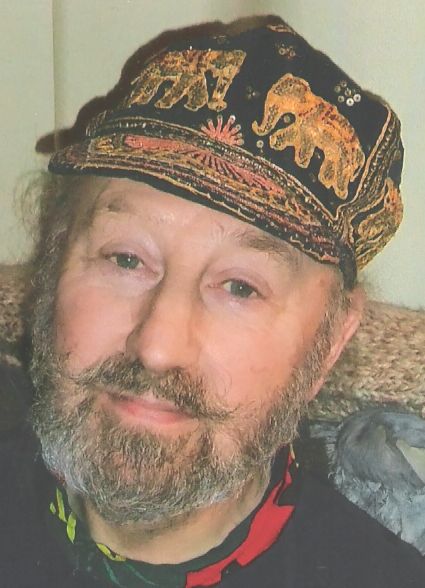Ancient British Bard, Storyteller,Musician,Songwriter,Poet,healer
1 South View
Whitby, North Yorkshire YO21 1PQ
ph:
alt:
Tony has written poetry for most of his life, returning to serious writing in 1975. His first poem to be published at that time was in ‘The Field’. Over the next fifteen years his work was widely published in poetry magazines and read on local Radio Humberside and on Tyne Tees Television.
A full collection of Tony’s published poems is to be found in the archives of St. Peter’s School, York, including two rare pamphlets, one containing some of his early poems written whilst at the School and one containing poems about York.
BOOKS PUBLISHED:
‘Comments’
1983, AM Press (supply controlled)
At the time of this publication Tony was the Artistic Director of The York People’s Festival and the book, though compiled from poems already selected by Edna Game, Leslie Richardson and Ursula Wadey, was hurriedly printed for the Festival. Nevertheless, it contains some significant poems, some published later elsewhere, some exclusive to ‘Comments’.
‘Poems for an Exhibition’
1993 AM(West)Press (out of print)
This was another book published in connection with an event, in this case the opening of an exhibition of Tony’s watercolours, ‘Dream
Landscape Flowers’ at the York Arts Centre, containing poems performed on that occasion and a poem written specially for the Exhibition, ‘Escape Attempts’. The performance was interlaced with music played by the solo flute player, Karen Grieveson.
This performance was significant in Tony’s return to poetry performance and musical development
‘Viking Echoes’
1994 Woodman Press
ISBN 1 897920 07 (out of print)
The significance of this work is that the bulk of it was written in 1983 at the time of the Falklands war and that it lay unpublished for ten years. In connection with Tony’s revival of his interest in poetry performance and the opportunity to experiment with this at Adrian Spendlow’s ‘Culture Share’ events at the York Arts Centre Tony met a Small Press publisher, Jay Woodman who asked to look at the manuscript and, having done so, said she would like to publish ‘Viking Echoes’ under her imprint.
With her editorial input this was a success and led to a writer/publisher partnership that lasted till Jay left Yorkshire for Hampshire in 1998.
‘Light Box'
– food, fun, music’ 1995 Woodman Press ISBN 1-897920-27-X
This book was published as a light counterbalance to the rather sombre ‘Viking Echoes’. It contains mainly performance pieces and, though the Publisher was less happy about it from a literary viewpoint than ‘Viking Echoes’, the poems have generally proved popular in performance.
‘Poet in Residence’
1996 Woodman Press ISBN 1-897920-42-3
Tony Morriswas Poet in Residence at the Theatre Royal, York chronicling all aspects of the three and a half months of the production and performance of Liz Lochhead’s adaptation of the York Cycle of Mystery Plays, directed by John Doyle. The Book was to be out for first night so the sixty seven poems in it were chosen from the seventy written in the first five weeks of rehearsal, plus a lightly honed version of ‘Hugh’ written originally in 1984 as one of twelve poems requested by a producer of Tyne Tees Television’s ‘Highway’ programme as ‘insurance’ in case the planned recording of the Plays in that year did not work. The recording was a great success as planned so the poems were never used.
Returning to 1996, in all there were one hundred and three poems, some of the additional post first night poems being included in the five performances that Tony gave at the Theatre during the run, of course, accompanied multi-instrumentally.
1997 Woodman Press ISBN 1-897920-47-4
This is Tony’s most important book to date and the one with which, since ‘Viking Echoes’, his Editor/Publisher was the most satisfied.
In the autumn of 1995 a funeral director friend of Tony’s was asked for a collection of poems suitable for reading aloud at a funeral. Tony was consulted and was unable to find one. About the same time Tony’s bookseller Daughter, then with a large London retail chain, said she had received a similar request with a similar lack of success.After discussions with the funeral director friend it was decided that Tony should write/compile a book of his own poems for this purpose and that it should be especially useful to those who worked in homes for ‘Seniors’ as such carers were often asked to take part in funerals where the deceased had outlived friends and relatives able to attend.
The book was ready for publication in 1996 but it was considered unwise to publish two books in the one year and, as Tony was bound to the publication of ‘Poet in Residence’ in that year, ‘Farewell to Friends’ was held back a year. When it was published it had been expanded by further poems written for it.
‘Farewell to Friends’ is a collection of over one hundred of Tony’s poems suitable for reading aloud at funerals and memorials. The poems are largely secular and a unique feature is that the user is invited to adapt them to the circumstances of their own occasion. There is sadness. There is hope. There is humour. The poems are so many-facetted that the book may be of use to the bereaved for personal reading and contemplation. Some poems are incisive, some robust, many tell stories. Although the poems are a product of the twentieth century they are for use in the twenty-first.
TONY MORRIS
Biography of a Musician
TONY MORRIS currently writes songs to be sung without accompaniment, against the trend to write Folk Music that is more about the sound of the accompanying instrument than the words and is barely distinguishable from easy listening popular music. TONY MORRIS achieves a sound and feel with his songs of the more grained songs that were sung by those who laboured with their hands and sung songs in the pub or place of work or home , the real local bards who were not detached from the grit and grime of everyday life. So it is back to bar room singing without canned music, microphones, guitars, drum machines and backing tapes. Real raw Folk Music. HERESY?
Aged nine, Tony Morris wanted to learn to play the violin. His parents bought him a piano. Within a few weeks his piano teacher had a fatal heart attack. The replacement, who later became organist at Canterbury Cathedral, receiving a knighthood for his services to music, quickly persuaded Tony to give up piano lessons.
Tony MORRIS'’s next contact with the world of musicians was conducting a choir in a choral competition. Though a success, the next year he was ousted by the musicians' mafia.This was in his late teens when, on Sunday mornings, he would sneak into the empty flat where the old piano still lingered and improvise music to accompany stories told silently in his head.
At university his music was singing doubtful songs in the bar. Later his rendition of "The Lambton Worm" earned him many a free dinner and there was more bar room singing with a friend who played piano. The music he was singing was Folk though he didn't realise it at the time.
There was no music for some years till a revived interest in acting led him to establish a skill for singing out of tune. Unfortunately, after a while, others ceased to regard this as an accomplishment so he adopted a more orthodox approach and played both the roles of Colonel Pickering and Henry Higgins in ‘My Fair Lady’, with different companies.
In the mid 1980’s Tony MORRIS worked with musicians in poetry and music events which he devised but sometimes had communication difficulties with musicians whom he found, mainly, too conformist.
For a solo exhibition of his paintings at the York Arts Centre in 1993 Tony Morris thought it would be fun to return to his poetry and music ideas so he teamed up with a friend who was a solo flute player. The event was a success but it reminded Tony of the difficulties he had working with classically trained musicians.
That Christmas a jesting Sue Morris, bought Tony MORRIS a Klutz book, ‘Harmonica for the musically hopeless’, with harmonica. The joke backfired. He developed an aptitude for blues harmonica investing in a whole range in different keys to use in his poetry performances.
A Rose Theatre production using a wooden sounding bowl inspired him further. Although this instrument was financially out of reach at that time he did manage to pick up a couple of lyres and a kantele, typically used by Norse bards of old. These instruments were easier to use in performance. A harmonica in the mouth inhibits the diction when speaking.
Tony MORRIS
now has a collection of more than fifty different instruments which he uses in his performances and recordings.
In year 2000, on a trip to Canada, Tony MORRIS found the instrument which he had sought for twelve years, a Native American Flute. He fell in love with it as an instrument essentially predating written music, an improvisational instrument easy to play and sound mellifluous. This fitted perfectly with TONY’S views on musical creation Having acquired quality instruments from both American and United kingdom Makers in 2008 TONY MORRIS now majors on this instrument both as a solo instrument and as an instrument to jam along with any music from Jazz, folk music to arabic music. Tony Morris has invented a new word to cover these flutes, 'Amerynd'. Google this word and see where it takes you.
TONY MORRIS has recorded 6 CDs and 3 Virtual Albums. The first one, 'CHANGING TRACKS' is poetry based 15 track album with accompanying music on 11 different instruments. The second album is completely different. 'TRAPPY LAD' has 16 tracks, 15 of them Folk songs and stories about the ironstone mining days of nineteenth century North Yorkshire. Although some songs are sung unaccompanied most have a guitar accompaniment using open or two note tunings. The stories have a Bowed Psaltery accompaniment.
&s=1366x768&o=Win32&c=32&j=true&v=1.2)




Copyright 2011 Ancient British Bard, Storyteller,Musician,Songwriter,Poet,healer. All rights reserved.
1 South View
Whitby, North Yorkshire YO21 1PQ
ph:
alt: